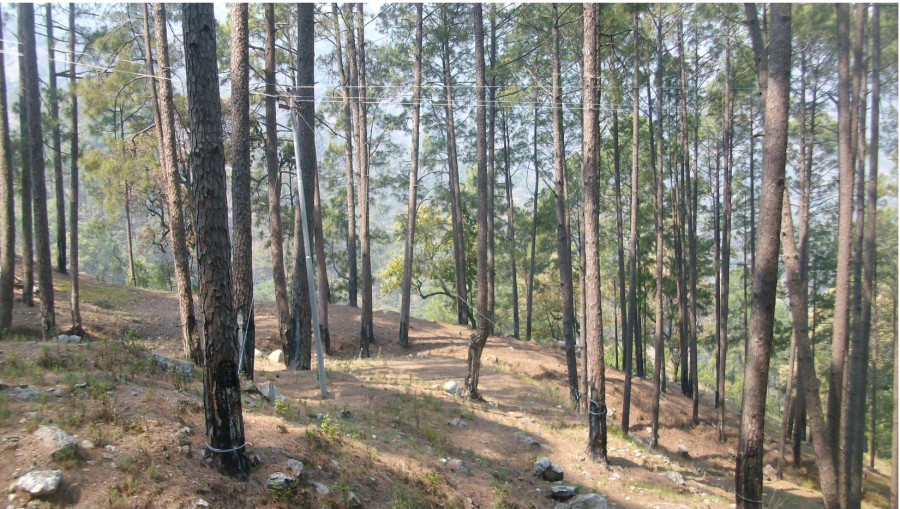National
Locals’ dream of lighting up their homes remains a distant dream
The electricity poles that should be supplying electricity have been built with little to no care, and the support wires have been tied around trees. The electricity poles stand uselessly for lack of proper connectivity and the locals’ pleas to fix the problem has fallen on deaf ears so far.
Menuka Dhungana
The locals of Ward 1 and 2 of Mangalsain Municipality, Achham, have a long-held dream of lighting up their houses with electricity. But recent development, or lack thereof, of the power line expansion work initiated a year and a half ago in the area has forced locals to live in darkness till this day.
The power line expansion was expected to provide electricity to around 600 households in wards 1 and 2 in Mangalsain. But the work is still incomplete owing to the sheer negligence of the contractor in-charge and the indifference of the people’s representatives and Nepal Electricity Authority (NEA) towards the needs of the locals.
The electricity poles that should be supplying electricity have been built with little to no care, and the support wires have been tied around trees. The electricity poles stand uselessly for lack of proper connectivity and the locals’ pleas to fix the problem has fallen on deaf ears so far.
“We live in a municipality, but we are deprived of even the most basic of facilities—like electricity. The poles could collapse at any time, and even the support wires have been tied to the trees,” said Devendra Bogati, a local, adding that the villagers had informed the District Administration Office about the expansion work delay and negligence of the contractor but the authorities paid no heed. The villagers are worried because the poorly erected poles pose high risk to nearby houses.
According to Bogati, in the hopes of receiving electricity soon, many households in the settlement have already completed wiring their homes. “It has been more than a year since the households finished wiring their homes, but the promised electricity has not arrived yet. The villagers regret the expense they had to make on wiring their houses,” he added.
As an alternative solution, some well-to-do families in the settlement have installed solar panels and have electricity supply in their households, but a majority of the villagers still depend on traditional oil lamps to light up their homes. “It is difficult for our children to study after the sun goes down. Our dream of having electricity remains unfulfilled,” said Dilu Nath, a local woman.
Because of this lack of electricity, locals have to depend on their neighouring settlements for something even as basic as charging their cell phones. “We have to go to the next village to charge our mobiles. That aside, the use of oil lamps carries serious health risks, especially for the elderly and the children. Every day we live with the risk of setting our houses on fire,” said Purna Rana, a teacher at a local school.
The elected representatives claimed that the NEA and the contractor did not coordinate with them while expanding the power line. “About 600 households stand to benefit if the electricity expansion line is completed; however, that seems like a distant dream. We asked the contractor not to tie the support wire to the trees for the danger they pose, but they did not listen to us,” said Man Bahadur Bogati, the ward chairman of Mangalsain-2.
The NEA said that the act of tying the support wire to trees is against the contract. “It was found that the support wires were tied to trees in the Kunti area. This cannot be done and is against the NEA rules and guidelines. We have asked the contractor to remove the wires immediately,” said Bijaya Regmi, the chief of NEA, Achham branch.
The construction company, however, claimed that they were forced to tie the support wires to trees for lack of required materials. “The workers tied the support wires for lack of option. The NEA should provide the required materials, and we will complete the work,” said Hemraj Dhungana, the contractor.




 9.51°C Kathmandu
9.51°C Kathmandu














